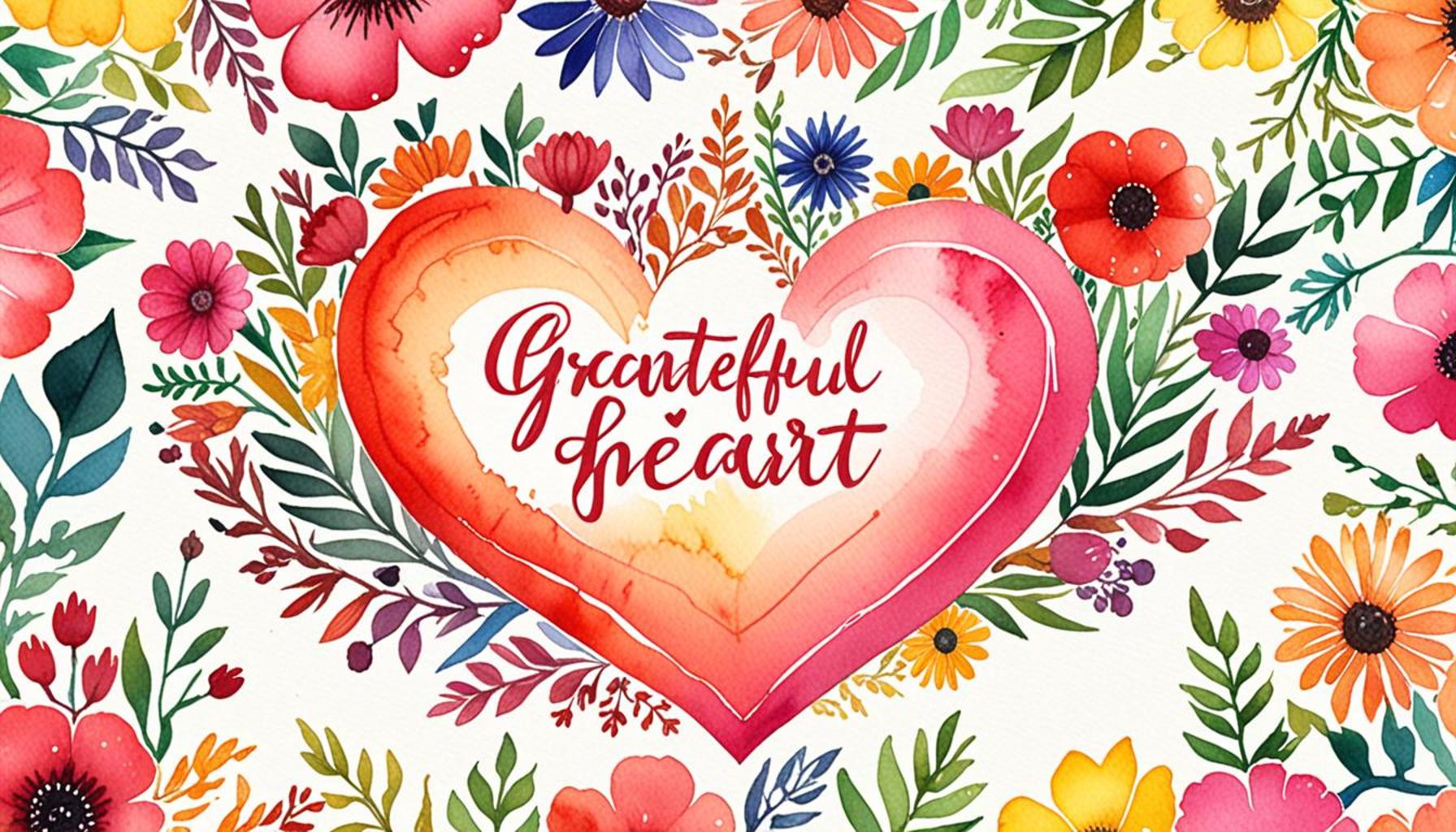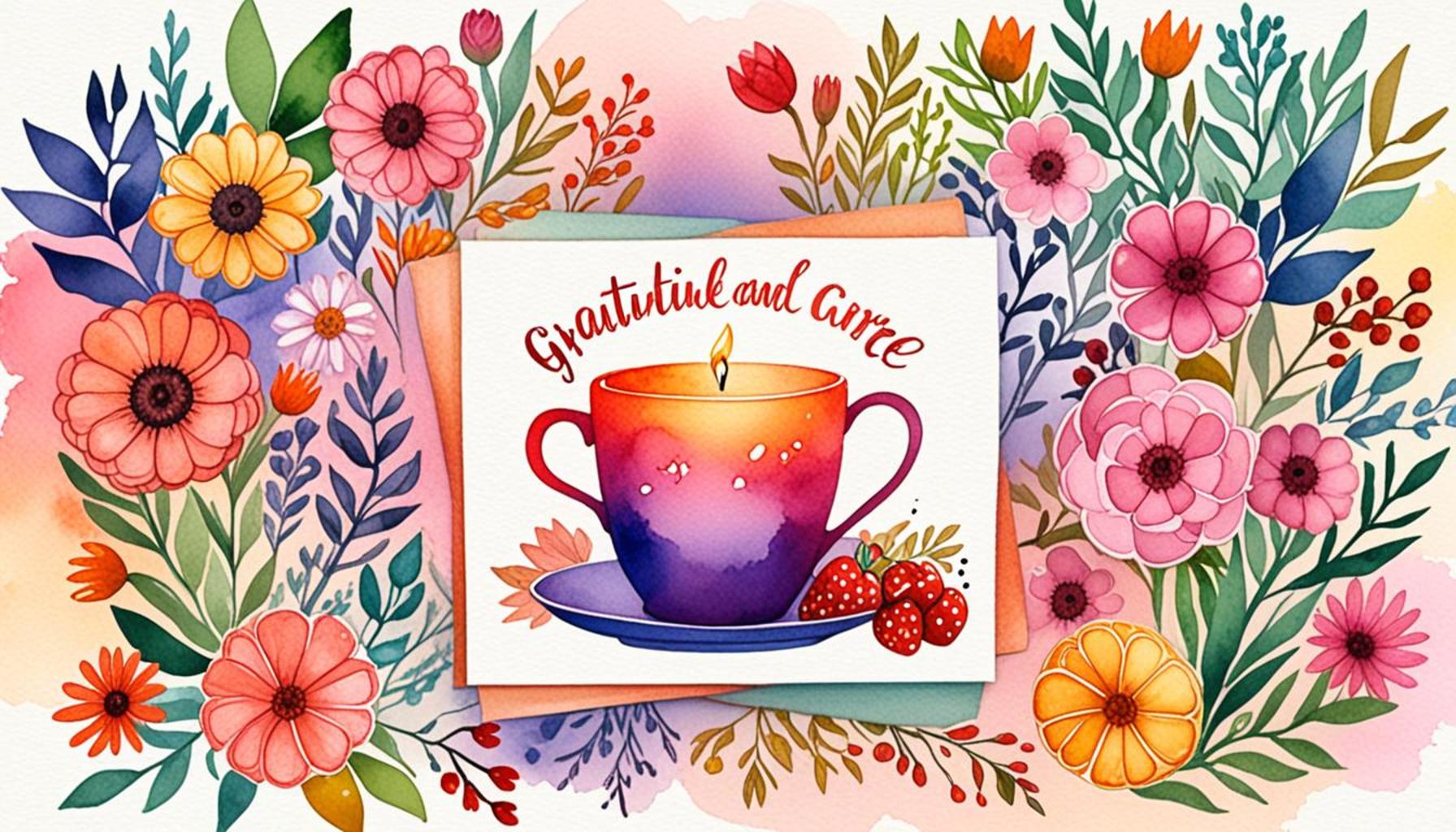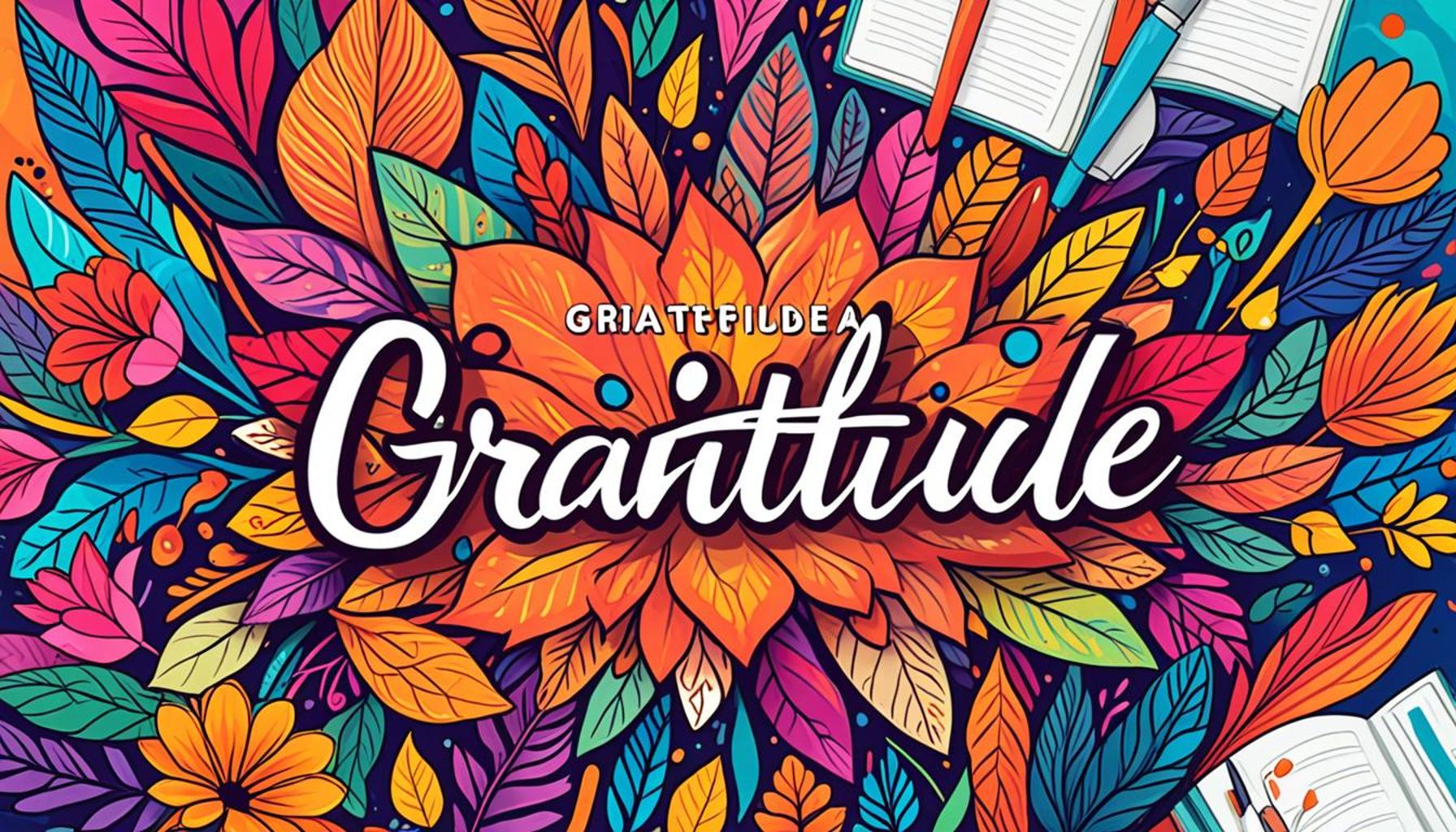The Role of Gratitude in Building Strong and Supportive Communities
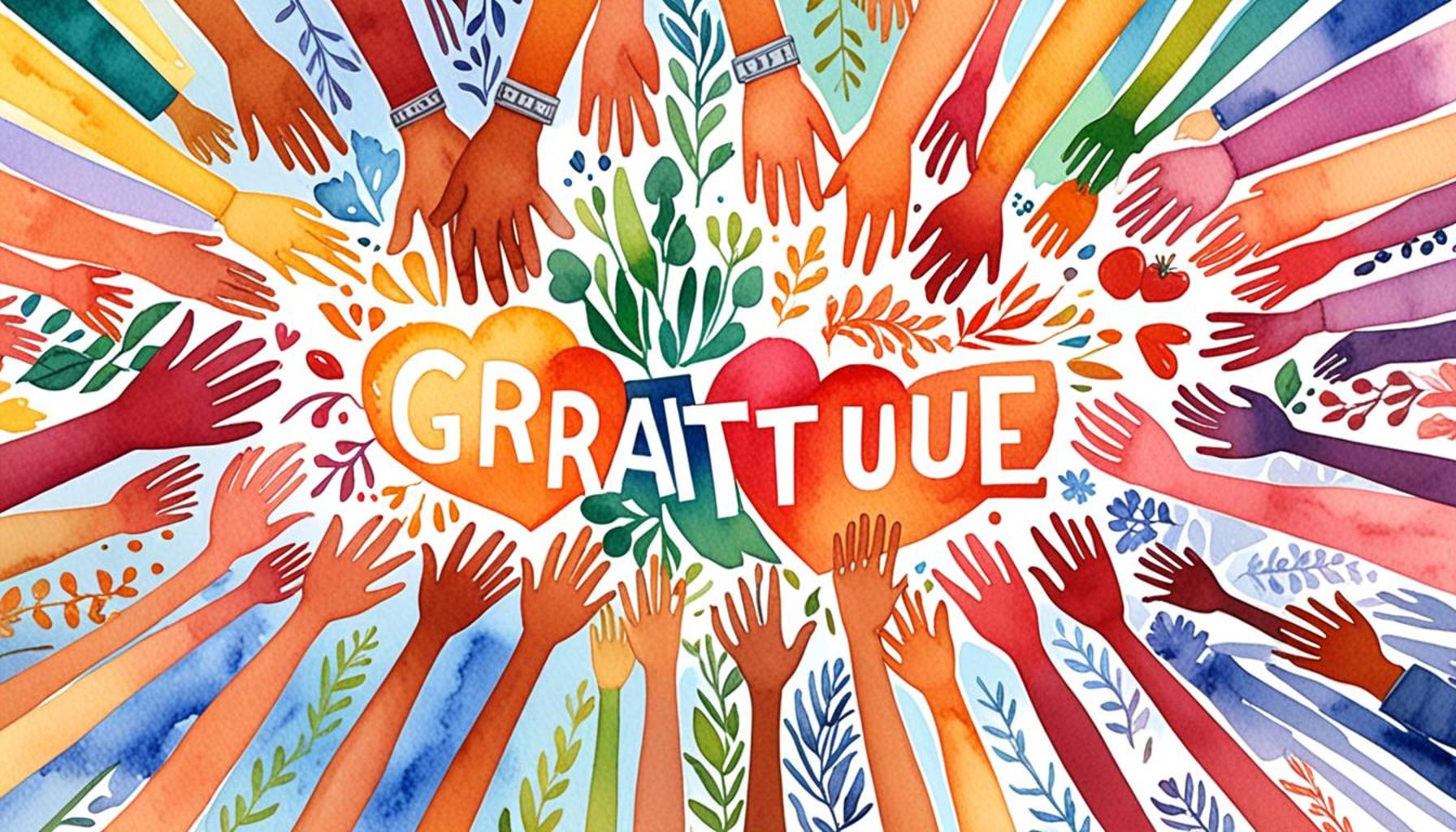
The Power of Gratitude in Building Communities
Gratitude is more than just a polite response; it serves as a fundamental pillar in fostering strong and supportive communities. When individuals express appreciation, it creates a ripple effect, enhancing social bonds and promoting a culture of care. This article delves into how gratitude can transform communities, particularly in the Nigerian context.
Consider the following aspects of gratitude’s impact:
- Strengthening Relationships: Regular expressions of gratitude can deepen connections among community members, fostering trust and camaraderie. For instance, in many Nigerian neighborhoods, simple acts such as thanking a neighbor for their assistance during a communal event can cultivate a history of cooperation and mutual support. The acknowledgment of shared efforts, whether it’s organizing a local church event or collaborating on agricultural projects, reinforces a sense of belonging and loyalty among the participants.
- Encouraging Inclusivity: By acknowledging the contributions of all members, gratitude enhances feelings of belonging. In the context of Nigeria’s diverse ethnic landscape, recognizing the efforts of different groups—such as the Yoruba hosting a cultural festival that invites participation from the Igbo, Hausa, and other tribes—can bridge gaps. Such gatherings foster inclusivity and appreciation across cultural lines, promoting unity in diversity.
- Facilitating Collaboration: Grateful individuals are often more willing to collaborate, which can lead to innovative community projects. A striking example is community-led initiatives like the Lagos Food Bank, where expressions of gratitude from beneficiaries can drive volunteers to continue their efforts. When gratitude is at the forefront, individuals are more likely to contribute their time and resources, knowing that their involvement has a meaningful impact.
In Nigeria, where diverse cultures intersect, the appreciation of communal efforts is evident in various festivities and local initiatives. Take, for instance, the annual Calabar Carnival, which brings together thousands of participants and spectators. The spirit of gratitude is palpable as community members recognize each other’s roles in creating an unforgettable experience through performances, floats, and cultural displays. Such events illustrate how gratitude plays a role in unity and collective pride.
Research indicates that communities that embrace gratitude experience better mental health and overall well-being. Acts of gratitude not only uplift individuals but can also lead to a decline in community-wide stress levels and conflict. Furthermore, studies have shown that regular practices of gratitude can enhance social cohesion, creating environments where people look out for each other.
Uncovering the various facets of gratitude’s role in communities allows us to recognize its potential in building not only resilience but also powerful connections among individuals. In an increasingly complex society where divisions can often arise, understanding and implementing gratitude could be a key strategy. As communities navigate challenges, fostering an attitude of gratitude can create a strong foundation for forging lasting relationships and inspiring collective action.
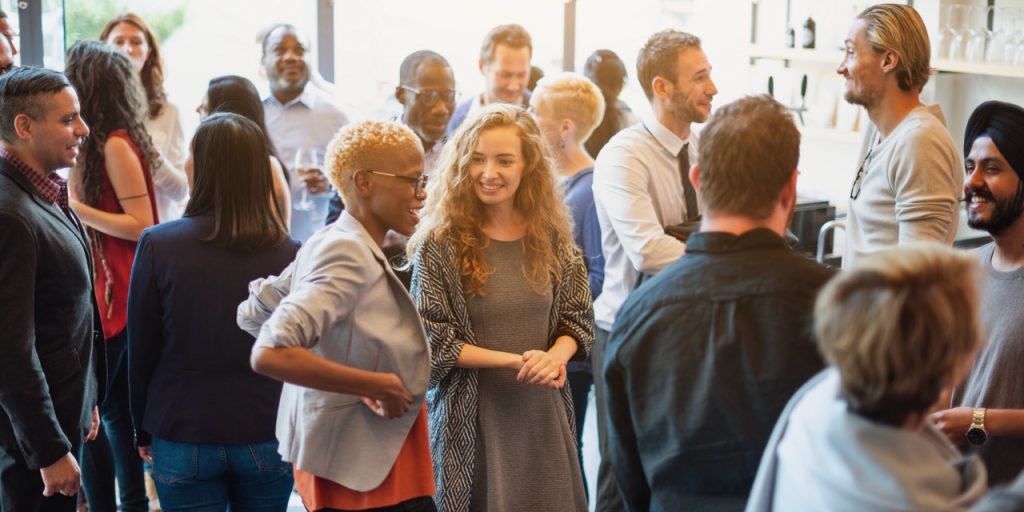
CHECK OUT: Click here to explore more
Gratitude as a Catalyst for Community Engagement
At the heart of every thriving community lies a powerful, often understated force: gratitude. This sentiment fosters a sense of belonging that transcends mere social interactions, morphing into a binding agent that holds communities together. In Nigeria, where communal ties are strong yet complex, understanding the role of gratitude becomes even more pertinent. It provides pathways to enhance connection, collaboration, and inclusivity among diverse groups.
Deepening Community Ties
The act of expressing gratitude significantly enhances social cohesion by encouraging individuals to engage more meaningfully with one another. Research suggests that when people express thanks to one another, it significantly strengthens their relationships. In a Nigerian context, routine expressions of appreciation can manifest in various forms, from verbal acknowledgments to small celebratory gestures like organizing appreciation gatherings in local neighborhoods. These acts serve as essential pillars for fostering long-lasting relationships.
- Public recognition: Celebrating community heroes, such as local teachers or healthcare workers, during community meetings or events fosters appreciation. When these individuals are honored for their contributions, others are motivated to engage more actively and contribute their own efforts.
- Creating traditions: Initiating community gratitude days, where members showcase their appreciation for one another, can build a strong sense of identity. These events can also serve as a platform for discussing community issues while simultaneously cultivating a spirit of gratitude.
- Fostering mentorship: Gratitude can also enhance intergenerational relationships. Elders may express their appreciation for the youth’s contributions, creating a cycle of mutual respect and learning that is fundamental for community sustainability.
Nurturing a Culture of Inclusion
In a nation characterized by a mosaic of ethnicities, gratitude has the unique ability to unite diverse groups. By recognizing and valuing contributions from various backgrounds, communities can foster an environment where everyone feels acknowledged and supported. For instance, local initiatives aimed at celebrating cultural diversity enable different tribes to share their heritage through food festivals, dance, and storytelling. Such activities not only serve to express gratitude but also build bridges that connect disparate groups.
The concept of gratitude extends beyond mere words; it encompasses actions that create a supportive atmosphere. Events like the annual Durbar festival in Northern Nigeria exemplify this, as communities come together to celebrate their history through displays of culture and appreciation. Such occasions instill pride while allowing various ethnic groups to showcase their uniqueness, nurturing a collective gratitude toward one another.
Promoting Positive Mental Health
Gratitude’s impact on mental health cannot be overlooked. Studies indicate that communities that practice gratitude experience lower levels of anxiety and depression, while individuals report increased levels of happiness and fulfillment. When members of a community express gratitude, they affirm their role in each other’s lives, which significantly bolsters emotional resilience. In Nigeria, where economic and social challenges exist, integrating gratitude into community activities can serve as a counterbalance to stressors, unifying individuals in pursuit of collective well-being.
As we explore the multifaceted role of gratitude in community building, its potential emerges more vividly. By actively implementing practices that foster gratitude, communities in Nigeria can not only enhance their social fabric but also create supportive environments where all members thrive. Understanding these dynamics is crucial for cultivating a more connected and resilient society.
The Role of Gratitude in Building Strong and Supportive Communities
Gratitude serves as an essential thread woven through the fabric of strong communities, fostering connections that enhance mutual support and collective well-being. When individuals express gratitude, it acts as a catalyst for positive feelings, leading to stronger interpersonal relationships. Research indicates that communities where gratitude is openly shared tend to cultivate cooperative behaviors, offering a fertile ground for trust and collaboration. This ripple effect encourages members to engage more deeply, enhancing their sense of belonging and identity within the group.
Moreover, gratitude practices can be transformative on a communal level. Regularly acknowledging and appreciating others helps to create an inclusive environment where every voice is heard and valued. For instance, community gatherings centered around expressing gratitude can lead to increased participation and enthusiasm, ultimately nurturing a culture of support. By embedding gratitude in daily interactions — whether through simple thank-yous or organized appreciation events — communities can reinforce their emotional bonds, suggesting a clear correlation between gratitude and robust community resilience.
| Category | Advantages |
|---|---|
| Social Bonds | Fosters deeper connections and strengthens relationships. |
| Community Engagement | Encourages participation and involvement in communal activities. |
| Emotional Well-being | Promotes a positive atmosphere, improving overall happiness. |
| Resilience | Enables communities to handle challenges more effectively. |
In incorporating gratitude into community practices, groups not only enhance their immediate relationships but also solidify their foundation against external stresses. As individuals within the community regularly recognize and appreciate one another, they collectively create an environment that invites growth, healing, and shared joy.
SEE ALSO: Click here to read another article
Gratitude as a Tool for Conflict Resolution
In communities where diverse opinions and backgrounds converge, misunderstandings and conflicts are inevitable. However, gratitude can play a pivotal role in resolving disputes and fostering harmony. By encouraging a mindset of appreciation, individuals can shift their focus from grievance to gratitude, facilitating dialogue and understanding. This transformation is particularly crucial in Nigeria, where ethnic and cultural differences sometimes fuel divisions.
Empathy through Gratitude
When community members practice gratitude towards one another, it enhances empathy and compassion. For instance, when conflicts arise, expressing gratitude for the other party’s perspective can encourage openness and reduce defensiveness. This tactic can be instrumental in community forums aimed at resolving local disputes, as participants learn to see one another’s humanity. Workshops centered on gratitude can help individuals develop the skills to appreciate different viewpoints, fostering a deeper communal understanding.
- Mediation initiatives: Involving neutral parties to mediate conflicts with a focus on expressing gratitude can create a safe space for discussions. Mediators can guide participants to acknowledge positive aspects of each other’s contributions, paving the way for resolution.
- Community dialogues: Regular town hall meetings, where appreciation is given for previous efforts and discussions are framed around gratitude, can serve as effective platforms for addressing grievances. These gatherings not only empower voices but also cultivate a culture of respect and acknowledgment.
- Storytelling as a tool: Sharing personal stories that reflect gratitude within the community can alter perceptions. The more individuals hear and understand each other’s narratives, the better equipped they become to foster peace.
Enhancing Volunteerism and Altruism
A culture of gratitude is crucial in promoting volunteerism, a cornerstone of community support. When individuals feel appreciated for their efforts, they are more likely to continue participating in communal activities. In Nigeria, initiatives led by local groups often rely on the altruistic spirit of residents, reinforcing their shared commitments to the community.
Gratitude acts as a motivational force that can spur individuals to engage actively in volunteer projects, from youth mentorship programs to environmental cleanup campaigns. Celebrating the contributions of volunteers through public acknowledgment can create a ripple effect, inspiring others to join these initiatives, thereby strengthening community ties.
Building Resilience through Collective Gratitude
In times of crisis—be it social unrest, economic hardship, or natural disasters—the power of gratitude can cultivate resilience within communities. Collective gratitude fosters a shared sense of purpose, encouraging individuals to support one another during challenging times. Initiatives that spotlight acts of kindness or highlight community members’ resilience can uplift spirits and nurture a proactive rather than reactive community ethos.
For example, during the COVID-19 pandemic, many communities in Nigeria demonstrated exceptional solidarity through various expressions of gratitude. This included recognizing frontline workers or showing appreciation for neighbors who shared resources. Such actions not only created a sense of unity but also reinforced community strength during a time of uncertainty.
As communities navigate through the complexities of modern life, establishing a culture of gratitude becomes an essential strategy for promoting understanding, engagement, and resilience. Each act of gratitude enriches the community’s social fabric and strengthens the foundation upon which supportive and vibrant communities are built.
RECOMMENDED: Check out this similar article
Conclusion
In a world that often feels divided and fragmented, the role of gratitude in building strong and supportive communities cannot be overstated. From fostering empathy to enhancing volunteerism, gratitude serves as a powerful catalyst for connection, understanding, and resilience. By practicing gratitude, community members can shift their focus from differences to shared experiences, leading to more productive dialogues and reduced tensions.
As highlighted throughout this exploration, communal gratitude not only facilitates conflict resolution but also paves the way for active citizenship. For example, initiatives that celebrate local volunteers can inspire others to contribute their time and resources, creating a network of support that enhances overall community well-being. Additionally, during challenging times, the collective expression of gratitude has been shown to uplift spirits and solidify bonds among individuals facing adversity.
Looking ahead, it is crucial for communities across Nigeria and beyond to deliberately cultivate a culture rooted in appreciation. By encouraging community dialogues, implementing mediation initiatives, and promoting storytelling that celebrates gratitude, we can truly transform neighborhoods into inclusive spaces that foster mutual respect and collaboration. The commitment to integrating gratitude in everyday interactions stands as a unifying force that strengthens social fabric, promoting harmony and cooperation.
Ultimately, as we embrace the profound impact of gratitude, we not only elevate our individual experiences but also enrich the communal tapestry that binds us together. Let us encourage one another to express gratitude, recognizing its potential to pave the way for a brighter future and a more supportive society.
